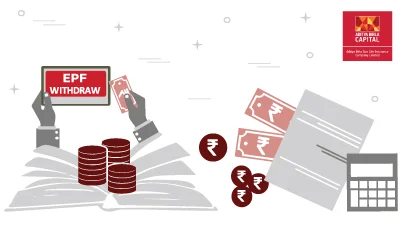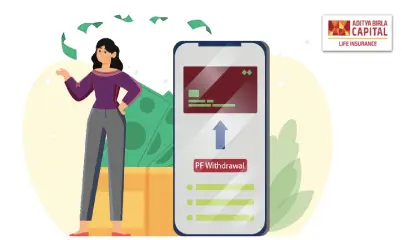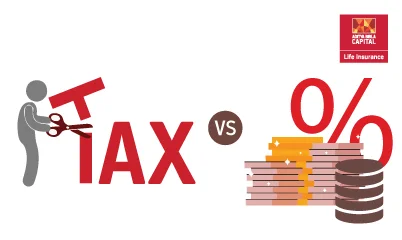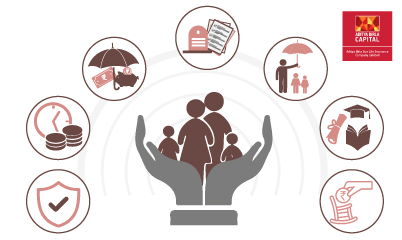Income Tax Deduction Under Section 80E


Get Guaranteed Returns After a Month^
Unlock the Power of Smart Investment!


-
 Table of Contents
Table of Contents- What exactly is Section 80E?
- The purpose of the loan
- Where is the best place to get a loan?
- Interest on Education Loans or Section 80E Income Tax Deduction
- Conditions for Using an Education Loan as an Income Tax Deduction
- Tax Deduction Under Section 80E Eligibility
- Deduction Period
- Amount of the Section 80E Tax Deduction
- Tax advantages related to Section 80E
- Advantages of Early Education Loan Repayment
- Calculating Section 80E Deductions
- Who may file a Section 80E tax benefit claim?
- Claiming the 80E Tax Deduction
- Required Documentation to Make a Deduction Claim
- Limit for claiming deduction under 80E
- How many years can someone make an 80E deduction claim?
- Conclusion
- Faqs
What exactly is Section 80E?
The purpose of the loan
Where is the best place to get a loan?
Interest on Education Loans or Section 80E Income Tax Deduction
Conditions for Using an Education Loan as an Income Tax Deduction
Tax Deduction Under Section 80E Eligibility
Deduction Period
Amount of the Section 80E Tax Deduction
Tax advantages related to Section 80E
Advantages of Early Education Loan Repayment
Calculating Section 80E Deductions
Who may file a Section 80E tax benefit claim?
Claiming the 80E Tax Deduction
Required Documentation to Make a Deduction Claim
Limit for claiming deduction under 80E
The deduction provided by Section 80E allows for a deduction on the actual interest paid for a fiscal year.
Therefore, the tax benefit is for five years instead of 8 years if the loan payback is finished in 5 years.
You cannot claim a deduction for interest paid beyond eight years if your loan payment is longer than that.
How many years can someone make an 80E deduction claim?
Conclusion
Frequently Asked Questions
- Courses pursued after successfully passing the 12th-grade examination
- Full-time courses pursued in any field, including medicine, engineering, humanities, applied science, management, nursing, etc.
- Vocational courses pursued after passing the 12th grade
- Courses are taken at both Indian and foreign institutions
Using Section 80E to reduce your tax liability is a great idea. Every individual taxpayer who is paying for a student loan should benefit from this tax break.
About Author
for Salaried Individuals¹
-
Disclaimer
ABSLI Nishchit Aayush Plan. This is a non-linked non-participating individual savings life insurance plan. UIN No 109N137V06
^ - Provided 0 year deferment & monthly income frequency is chosen at the time of inception of the policy.
~ Male- 25 yrs invests in ABSLI Nishchit Aayush Plan with Level Income + Lumpsum Benefit. He chooses premium payment term 10 yrs , policy term 40 years, benefit option -Long Term Income, Sum Assured 7 times of Annualized Premium and Deferment Period 0 years. Annualized Premium is ₹1,20,000 (Exclusive of GST.). Annual Income of ₹45,900 (45,900*40=18,36,000) + Maturity Benefit (₹16,80,000)= ₹35,16,000
ADV/9/22-23/1582
Subscribe to our Newsletter
Get the latest product updates, company news, and special offers delivered right to your inbox
Thank you for Subscribing
Stay connected for tips on insurance and investments

 Home Loans
Home Loans
 Personal
Loans
Personal
Loans
 SME Loans
SME Loans
 Business Loans - Udyog
Plus
Business Loans - Udyog
Plus
 Loan against Securities
Loan against Securities
 Mutual Funds
Mutual Funds
 Stock and
Securities
Stock and
Securities
 Portfolio
Management Services
Portfolio
Management Services
 Pension Funds
Pension Funds
 Life
Insurance
Life
Insurance
 Health
Insurance
Health
Insurance
 Wellness
Solutions
Wellness
Solutions
 Pay Bills
Pay Bills
 Pay anyone
Pay anyone
 Pay on call
Pay on call
 Payment
Lounge
Payment
Lounge
 ABC Credit
Cards
ABC Credit
Cards

 1800-270-7000
1800-270-7000









